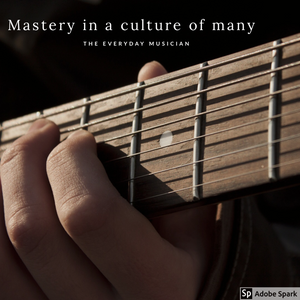Student Loans: Just Worry About It Later
- Jan 17, 2019
- 3 min read
In 2003 I started college at Morehead State University. Prior to starting I went through the process of filling out the FASFA form with my parents just as many others do. The result? I was given a grant and the rest would be covered by Sallie Mae and Fed loans. With that process complete, I was excited to start the fall semester. What I didn't realize was the "worry about it later" mindset would have a long lasting effect.
From time to time over the years of undergrad I would meet with my financial counselor to discuss upcoming payments. These payments included tuition and book costs. Of course I had no way of paying for the thousands of dollars that was being asked, but no worry. I could take out more student loans, both subsidized and subsidized.
As the years continued I still had no clue what the total effect would be. However, I would receive a check during most of my semesters at MSU. It was a reimbursement check for the amount over paid from the loan amounts requested. What did I do with it? Instead of being rationale and putting it towards the never ending recurring interest, I chose to spend it. "Just worry about it later."
After 5 years of undergrad I began my graduate studies at MSU. After one year was I excepted to the grad program at The University of The Arts in Philly. At the time I was really into guitarist Jimmy Bruno, and since I had seen his name and Pat Martino's name listed on the faculty list, I thought, why not. I had only one year left and I could finish the program in one year at UARTs. The price to go was definitely more and even though I was given a scholarship by the university, I still added more debt with student loans.
In 2010 I graduated with my masters. In 2011 I received the first bill. Remember that whole "worry about it later" mentality? Later became now.
I will not go into the details, but lets just say it was a substantial amount. What I learned and what I would advise is to think really hard about whether or not going to college for music/guitar is worth the cost, a cost that does not qualify for bankruptcy, a cost that will be with you when you are sick, when you have children, and when cars break down.
There are some great opportunities that I've had, but think about the ROI (return on investment). If your goal is to perform then maybe consider studying with the musicians that you admire. Nobody cares where you went to school when you show up on a gig (most don't). No one is pulling out they're framed degree! The real question is "Can you play?"
Do you want to teach at the college level? Now the degree becomes beneficial, to a point. How many full time guitar faculty are there compared with the number of students coming out with a master/doctorates degree? How many have obtained those degrees over the last 20 or 30 years?
The positive?
When I reflect back on my experiences I can say that there were definitely positive aspects as well. I met my now wife at college. If I never left my hometown, especially when I went to Philly, then I'm not sure I would have had the confidence, ambition, or perseverance to continue in a music career. I also have met some great musicians and have made connections with a handful of people that continues to this day. Having the college degree has also allowed for a few educational options that I may not have had as well.
The point is to really consider the long game. Many of us have student loans and many spend 10-20 years at least paying them off. No university is going to teach you to play "modern jazz" or to play like Pat Metheny (insert any other name artist you really admire). Define your WHY for wanting to study at the college level and if it is a strong enough reason, then go. Just take the time to apply for as many grants/scholarships that you can while saving as much money from your after school job as possible!







Comments